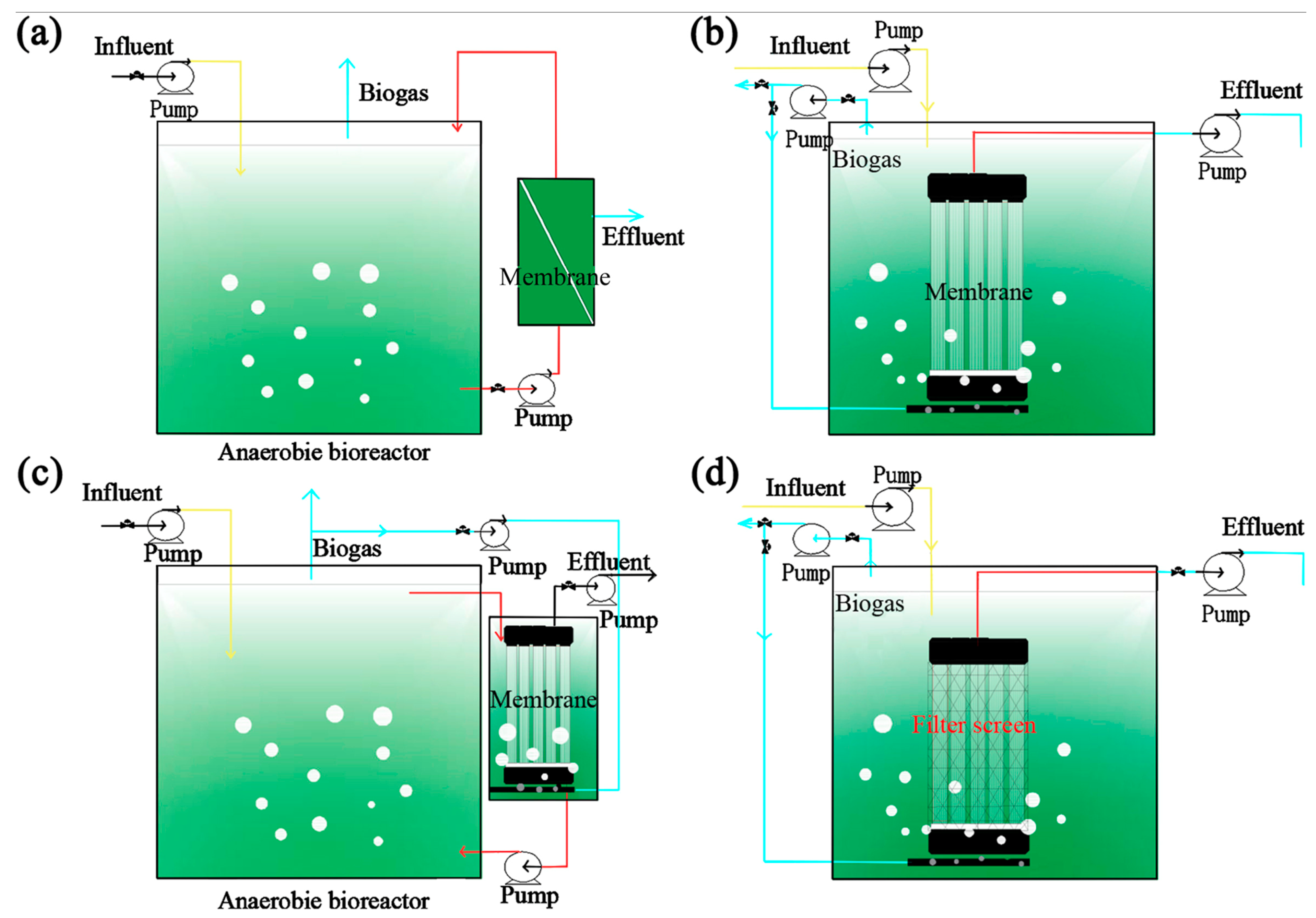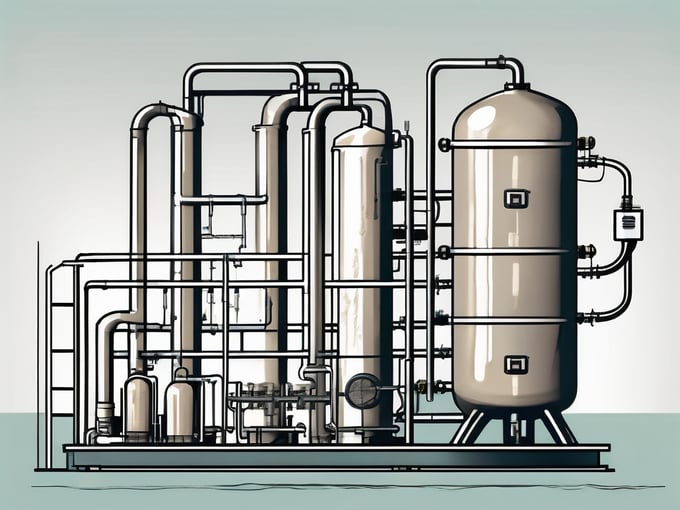Why Membrane Bioreactor Solutions Are Ideal for Sustainable Water Treatment
Why Membrane Bioreactor Solutions Are Ideal for Sustainable Water Treatment
Blog Article
The Benefits of Membrane Layer Bioreactors in Sustainable Wastewater Management
Membrane layer bioreactors (MBRs) represent a pivotal development in sustainable wastewater monitoring, efficiently combining biological treatment with innovative membrane layer purification innovation. As the demand for lasting remedies escalates, exploring the multifaceted advantages of MBRs may expose unforeseen effects for the future of wastewater therapy systems.
Overview of Membrane Bioreactors
Membrane bioreactors (MBRs) stand for a considerable improvement in wastewater treatment modern technology, incorporating biological destruction with membrane filtration to boost the performance of the treatment procedure. This cutting-edge system integrates the benefits of standard activated sludge procedures with membrane layer technology, enabling improved solid-liquid splitting up. MBRs use semi-permeable membrane layers to separate treated water from biomass, resulting in high-quality effluent that can be recycled or securely released right into the atmosphere.
The functional style of MBRs normally involves a bioreactor where microorganisms damage down organic matter, adhered to by a membrane layer system that filterings system the combined liquor. This setup not only minimizes the footprint of the treatment center however additionally enables greater biomass concentrations and minimized hydraulic retention times. MBRs are qualified of dealing with a bigger array of impurities, consisting of nutrients and microorganisms, making them suitable for numerous applications, from local wastewater therapy to commercial effluent processing.
The combination of MBRs right into wastewater management systems is a measure of an expanding pattern in the direction of effective and lasting practices in environmental design. Their capability to produce high-quality effluent while minimizing room demands settings MBR innovation as a principal in modern wastewater therapy remedies.
Enhanced Effluent High Quality

The membrane purification procedure serves as a physical barrier, making it possible for the retention of microbes and particulate matter, which adds to a clearer and cleaner effluent (Membrane Bioreactor). MBRs operate at higher biomass concentrations than traditional turned on sludge systems, advertising more reliable biodegradation of contaminants. This causes a decrease in biochemical oxygen need (FIGURE) and overall suspended solids (TSS) levels in the last effluent
Furthermore, MBRs demonstrate exceptional efficiency in dealing with challenging wastewater compositions, such as industrial effluents and wastewater with high nutrient tons. Consequently, the effluent created is frequently of higher top quality, enabling even more adaptable disposal choices and decreased ecological effect. Inevitably, the boosted effluent top quality attained through MBR technology emphasizes its vital function beforehand sustainable wastewater monitoring techniques.
Water Reuse Opportunities
The top quality effluent created by membrane layer bioreactors (MBRs) opens significant chances for water reuse in different applications. MBRs properly eliminate contaminants, including pathogens, suspended solids, and organic issue, leading to treated water that meets or goes beyond regulatory requirements for reuse. This top quality enables the implementation of water reusing efforts throughout varied industries.
One popular application is in agriculture, where dealt with wastewater can be made use of for irrigation, promoting sustainable farming methods while conserving fresh water sources. In addition, MBR-treated effluent can be used for commercial procedures such as air conditioning, cleansing, and as a procedure water resource, considerably minimizing the need for safe and clean water in these operations.
In city settings, MBRs help with making use of redeemed water for landscape irrigation, toilet flushing, and various other non-potable usages, adding to the total resilience of water system systems. Furthermore, his response the combination of MBR modern technology in decentralized systems help in taking care of localized water demands, specifically in water-scarce areas.
Lowered Ecological Effect
How can the adoption of membrane layer bioreactors (MBRs) add to a reduced environmental influence in wastewater monitoring? MBRs significantly enhance the therapy efficiency of wastewater while reducing eco-friendly disturbances. By incorporating biological treatment processes with membrane filtration, MBRs effectively remove a variety of pollutants, consisting of natural matter, nutrients, and microorganisms. This innovative purification leads to higher-quality effluent, which is crucial for safeguarding marine ecological communities and reducing the burden on all-natural water bodies.
In addition, MBRs run at reduced hydraulic retention times contrasted to standard systems, leading to smaller treatment plant impacts. This portable layout reduces land usage, therefore preserving all-natural habitats and biodiversity. The procedure additionally read this creates much less sludge than typical methods, reducing disposal obstacles and reducing greenhouse gas discharges linked with sludge management.
In addition, MBRs help with the healing of valuable sources, such as water and nutrients, adding to a circular economic situation. By enabling water reuse for irrigation or commercial procedures, MBRs help alleviate freshwater shortage, therefore advertising sustainable water utilize practices. Eventually, the adoption of MBR technology stands for a significant stride in the direction of reducing the environmental impact of wastewater management systems.
Economic Benefits of MBRs

In addition, MBRs help with the manufacturing of top notch effluent, which can be recycled for numerous applications, such as agricultural watering and commercial processes - Membrane Bioreactor. This reuse capacity can substantially lower water procurement costs, offering a monetary reward for sectors facing stringent water policies
The small layout of MBR systems also leads to lowered land needs, which is particularly useful in city areas where realty is pricey. By reducing area, districts and markets can conserve on land acquisition and maintenance costs.
Additionally, MBRs commonly call for less regular upkeep and have a longer life expectancy than typical systems, further adding to cost financial savings. In summary, the economic benefits of MBRs-- ranging from decreased functional prices to land financial savings and effluent reuse-- make them look at more info a compelling option for sustainable wastewater monitoring, offering both instant and long-lasting monetary benefits.
Verdict
In addition, MBRs contribute to reduced environmental impacts through small styles and lower sludge generation. Economic benefits even more improve their feasibility, making MBRs a promising solution for dealing with the difficulties of wastewater therapy and advertising sustainable resource monitoring.
Membrane bioreactors (MBRs) stand for a crucial innovation in lasting wastewater management, properly combining biological therapy with sophisticated membrane filtering technology.Membrane bioreactors (MBRs) represent a substantial improvement in wastewater treatment modern technology, integrating biological deterioration with membrane layer filtration to improve the effectiveness of the treatment process.Attaining improved effluent quality is one of the most substantial advantages of making use of membrane layer bioreactors (MBRs) in wastewater therapy.Additionally, MBRs show outstanding performance in treating difficult wastewater structures, such as industrial effluents and wastewater with high nutrient lots.Integrating membrane bioreactors (MBRs) into wastewater monitoring not only lowers ecological impact however also presents considerable economic advantages.
Report this page